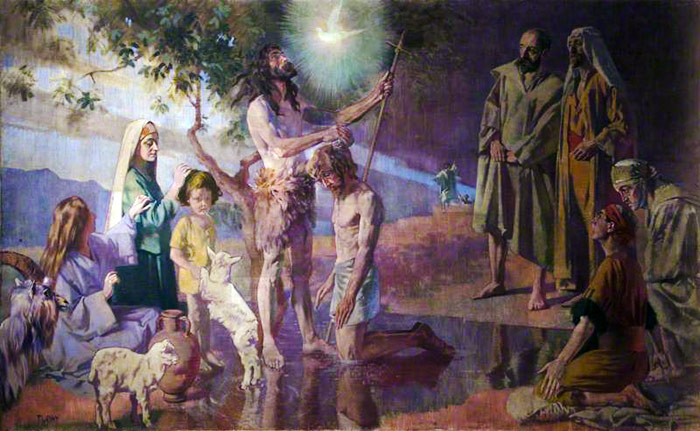“The grace of the Lord Jesus Christ and the love of God and the fellowship of the Holy Spirit be with you all.”
2 Corinthians 13:14
We acknowledge the Trinity, holy and perfect, to consist of the Father, the Son and the Holy Spirit. In this Trinity there is no intrusion of any alien element or of anything from outside, nor is the Trinity a blend of creative and created being. It is a wholly creative and energising reality, self-consistent and undivided in its active power, for the Father makes all things through the Word and in the Holy Spirit, and in this way the unity of the holy Trinity is preserved.
Accordingly, in the Church, one God is preached, one God who is above all things and through all things and in all things. God is above all things as Father, for he is principle and source; he is through all things through the Word; and he is in all things in the Holy Spirit.
Writing to the Corinthians about spiritual matters, Paul traces all reality back to one God, the Father, saying: Now there are varieties of gifts, but the same Spirit; and there are varieties of service but the same Lord; and there are varieties of working, but it is the same God who inspires them all in everyone (1 Corinthians 12).
When the Spirit dwells in us, the Word who bestows the Spirit is in us too, and the Father is present in the Word.
Athanasius
Even the gifts that the Spirit dispenses to individuals are given by the Father through the Word. For all that belongs to the Father belongs also to the Son, and so the graces given by the Son in the Spirit are true gifts of the Father. Similarly, when the Spirit dwells in us, the Word who bestows the Spirit is in us too, and the Father is present in the Word. This is the meaning of the text: My Father and I will come to him and make our home with him. For where the light is, there also is the radiance; and where the radiance is, there too are its power and its resplendent grace.
When we share in the Spirit, we possess the love of the Father, the grace of the Son and the fellowship of the Spirit himself.
Athanasius
This is also Paul’s teaching in his second letter to the Corinthians:
The grace of our Lord Jesus Christ and the love of God and the fellowship of the Holy Spirit be with you all.
2 Corinthians 13:14
For grace and the gift of the Trinity are given by the Father through the Son in the Holy Spirit. Just as grace is given from the Father through the Son, so there could be no communication of the gift to us except in the Holy Spirit. But when we share in the Spirit, we possess the love of the Father, the grace of the Son and the fellowship of the Spirit himself.
This English translation of St. Athanasius’s discourse appears in the Roman office of Readings for Trinity Sunday. It is an excerpt from St. Athanasius’ first letter to Serapion (Ep. 1 ad Serapionem 28-30: PG 26, 594-95. 599).
Top image credit: The Baptism of Christ and Descent of the Holy Spirit, painted by Patrick Joseph Tuohy in 1922, © by the National Museums of Northern Ireland, location at the Ulster Museum, Belfast, N.I. Image in the Public Domain, source Wikimedia Commons.
Athanasius of Alexandria (298-373 A.D.) was a bishop of Alexandria (Egypt), in the fourth century. Before reaching the age of 20, Athanasius wrote a treatise entitled On the Incarnation, affirming and explaining that Jesus was both God and Man. In about 319, when Athanasius was a deacon, a presbyter named Arius began teaching that there was a time before God the Father begat Jesus Christ when the latter did not exist. Athanasius responded that the Father’s begetting of the Son, or uttering of the Word, was an eternal relationship between them, not an event that took place within time. Thus began catholic Christianity’s fight against the heresy of Arianism.
Athanasius fought consistently against Arianism all his life. He accompanied bishop Alexander to the First Council of Nicaea in 325 AD, which council produced the Nicene Creed and anathematized Arius and his followers. On May 9, 328, he succeeded Alexander as bishop of Alexandria. As a result of rises and falls in Arianism’s influence, he was banished from Alexandria only to be later restored on at least five separate occasions, perhaps as many as seven. This gave rise to the expression “Athanasius contra mundum” or “Athanasius against the world.” During some of his exiles, he spent time with the Desert Fathers, monks and hermits who lived in remote areas of Egypt. In his lifetime he earned the characteristic title of “Father of Orthodoxy.”
[Biographical sources from Theopedia and New Advent]



